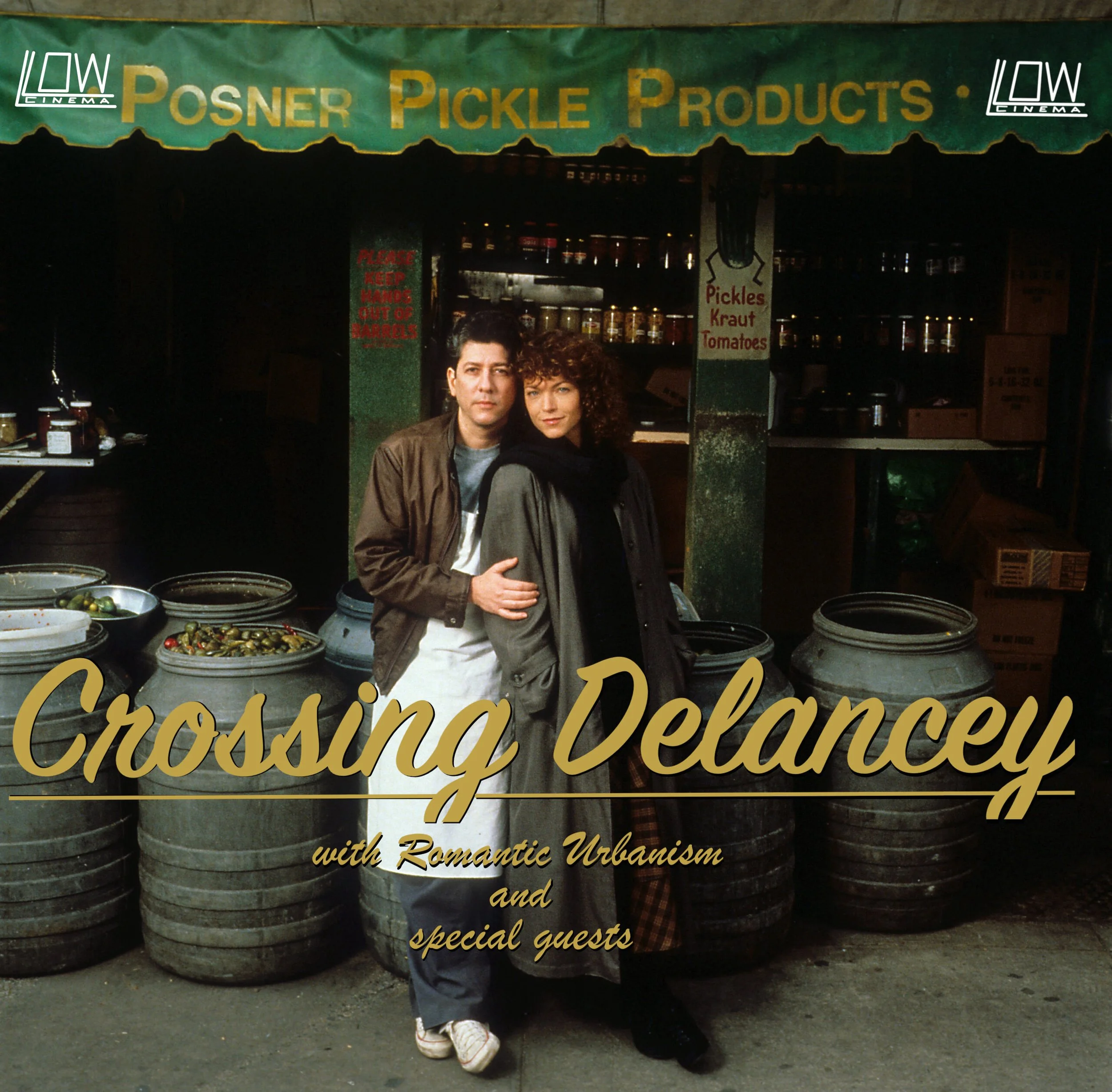 Image 1 of 1
Image 1 of 1


Crossing Delancey (1988) – Thu, Oct 16, 7:30PM
Dir. Joan Micklin Silver, 1988, USA, 97 min.
Dubbed a “deep-cut gem” by the New York Review of Architecture’s Grace Byron and lauded as “endlessly, addictively rewatchable” by the New Yorker’s Rachel Syme, Joan Micklin Silver’s lodestar rom-com Crossing Delancey crossed more than an East-West thoroughfare upon its release — it also crossed deeply entrenched professional limitations placed on aspiring women directors by a stubbornly patriarchal film industry.
Silver’s fourth feature stars Amy Irving as a lovelorn bookstore clerk who falls for both a fancy guy and a regular guy — so much rom-com boilerplate — but it also stars two very different versions of Jewish Manhattan: the Upper West Side and the Lower East Side. From Zabar’s and Harry’s Shoes to Yonah Schimmel’s Knishes and Guss’ Pickles (RIP), Silver gives us a tale of two superimposed eras — from the 19th-century landing strip of fresh-from-the-shtetl immigrants squeezed into the densest tenement district in history to what later developed into the epicenter of Gotham’s literary and academic Jewish cognoscenti. The tug-of-war between these two versions of her diasporic community is the core conflict that Irving’s character has to contend with, the big-shot writer and the humble pickle peddler merely standing in for this tension.
Low is proud to partner with Romantic Urbanism for this special one-night-only event. Romantic Urbanism’s Louise Yeung will introduce the screening, after which Daphne Lundi will moderate a panel discussion with housing policy expert Samuel Stein and writer Grace Byron about Jewish identity, the history of the Lower East Side, and the changing class and economic character of the city’s neighborhoods.
Catering provided by Gray’s Papaya.
Daphne Lundi is an urban planner and climate policymaker from Brooklyn. She co-leads Romantic Urbanism, an ongoing project that explores how cities can foster love, connection, and social cohesion.
Louise Yeung is an urban planner, artist, and co-founder of Romantic Urbanism, a project that imagines how cities can be designed to foster love and connection.
Grace Byron is a writer from the Midwest based in Queens whose writing has appeared in The New Yorker, Vogue, The Nation, GQ, The Paris Review, NYRA, and elsewhere. Her debut novel, Herculine, is out now from Simon and Schuster.
Samuel Stein is a housing policy analyst and the author of the book Capital City: Gentrification and the Real Estate State. He was evicted from a rent stabilized apartment in the Lower East Side 18 years ago and he’s still mad about it.
All sales are final; no refunds or exchanges. Five minutes after the listed showtime, any unused tickets will be considered no-shows and released to standby customers.
Dir. Joan Micklin Silver, 1988, USA, 97 min.
Dubbed a “deep-cut gem” by the New York Review of Architecture’s Grace Byron and lauded as “endlessly, addictively rewatchable” by the New Yorker’s Rachel Syme, Joan Micklin Silver’s lodestar rom-com Crossing Delancey crossed more than an East-West thoroughfare upon its release — it also crossed deeply entrenched professional limitations placed on aspiring women directors by a stubbornly patriarchal film industry.
Silver’s fourth feature stars Amy Irving as a lovelorn bookstore clerk who falls for both a fancy guy and a regular guy — so much rom-com boilerplate — but it also stars two very different versions of Jewish Manhattan: the Upper West Side and the Lower East Side. From Zabar’s and Harry’s Shoes to Yonah Schimmel’s Knishes and Guss’ Pickles (RIP), Silver gives us a tale of two superimposed eras — from the 19th-century landing strip of fresh-from-the-shtetl immigrants squeezed into the densest tenement district in history to what later developed into the epicenter of Gotham’s literary and academic Jewish cognoscenti. The tug-of-war between these two versions of her diasporic community is the core conflict that Irving’s character has to contend with, the big-shot writer and the humble pickle peddler merely standing in for this tension.
Low is proud to partner with Romantic Urbanism for this special one-night-only event. Romantic Urbanism’s Louise Yeung will introduce the screening, after which Daphne Lundi will moderate a panel discussion with housing policy expert Samuel Stein and writer Grace Byron about Jewish identity, the history of the Lower East Side, and the changing class and economic character of the city’s neighborhoods.
Catering provided by Gray’s Papaya.
Daphne Lundi is an urban planner and climate policymaker from Brooklyn. She co-leads Romantic Urbanism, an ongoing project that explores how cities can foster love, connection, and social cohesion.
Louise Yeung is an urban planner, artist, and co-founder of Romantic Urbanism, a project that imagines how cities can be designed to foster love and connection.
Grace Byron is a writer from the Midwest based in Queens whose writing has appeared in The New Yorker, Vogue, The Nation, GQ, The Paris Review, NYRA, and elsewhere. Her debut novel, Herculine, is out now from Simon and Schuster.
Samuel Stein is a housing policy analyst and the author of the book Capital City: Gentrification and the Real Estate State. He was evicted from a rent stabilized apartment in the Lower East Side 18 years ago and he’s still mad about it.
All sales are final; no refunds or exchanges. Five minutes after the listed showtime, any unused tickets will be considered no-shows and released to standby customers.
